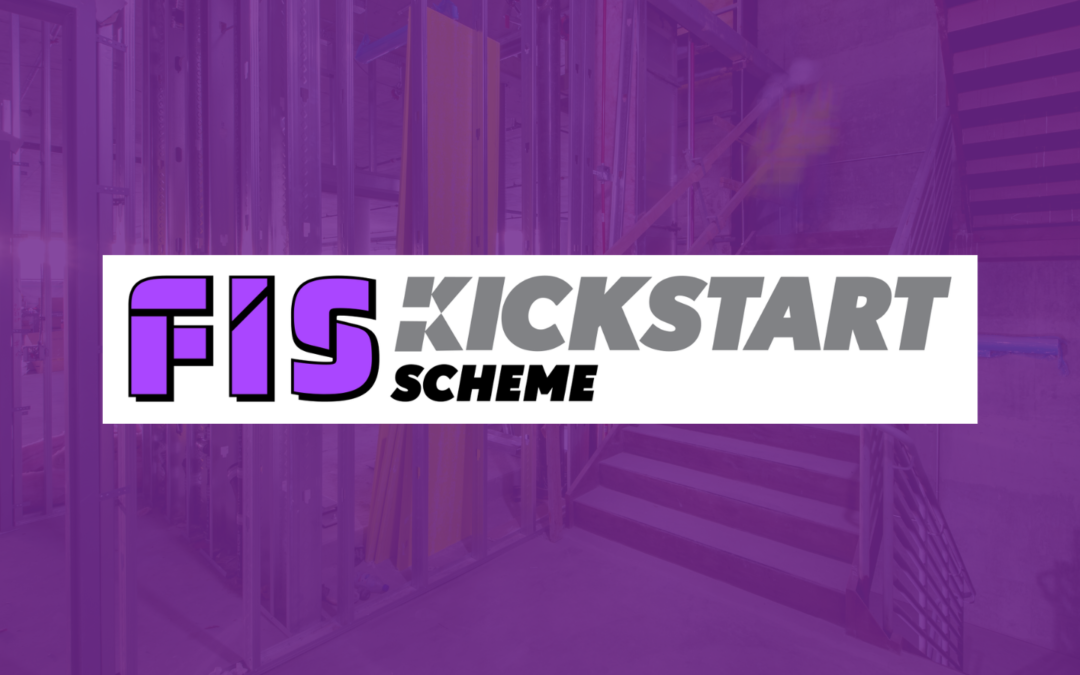
by Clair Mooney | Apr 29, 2021 | Skills
The new flexi-job apprenticeship schemes were announced by the Chancellor in the last Budget. It is proposed that the schemes will build on the existing Apprenticeship Training Agency model, to allow employers to join forces and access funding to create new or expand existing schemes to boost the use of apprenticeships in sectors with non-traditional employment patterns, including construction. DfE will launch the flexi-job apprenticeships fund in July 2021 with employers set to be invited to bid for a share of a £7 million fund to create and test new flexi-apprenticeships schemes, with the first approved flexi-job apprenticeships expected to start in January 2022.
A consultation seeking views on DfE vision and operating framework for flexi-job apprenticeship schemes as a means to increase the use of apprenticeships in certain sectors and professions. Apprenticeships are more important than ever in equipping individuals and businesses with the skills they need as we build back better from the coronavirus (covid-19) outbreak. Government want to make sure apprenticeships reflect modern models of employment for all employers in all sectors. They are developing portable apprenticeships, putting apprentices in the driving seat and enabling them to move between employers in industries where short-term contracts are the norm. This consultation asks you to consider how flexi-job apprenticeship schemes can support the growth of apprenticeships in sectors where short-term and project-based contracts are the norm. To complete the survey please go to: Flexi-Job Apprenticeships: Reshaping the role of Apprenticeship Training Agencies – Page 1 of 7 – Department for Education – Citizen Space
This flexi-job apprenticeship consultation will close on 1 June 2021.
George Swann said: “This scheme has potential for encouraging employers in the finishes and interiors sector to collaborate in the training of apprentices. Although the focus is on the duration of the apprenticeship programme, a Flexi-job apprenticeship could provide individuals with more variety than they may get when working with a single employer, which could ensure they cover every criteria listed in the Apprenticeship Standard prior to the end test. FIS will keep a watchful eye on this as it develops. Please take a few minutes to complete the survey”.

by Clair Mooney | Apr 28, 2021 | Skills
A new manual, co-authored by industry and government, has today been published to set out how flexibilities in apprenticeships can be used and delivered in construction – to meet the needs of employers and apprentices.
Apprenticeships have been on a transformational journey since 2012, with reforms such as the introduction of employer led standards leading the way in ensuring apprenticeships are relevant, high quality, and meet the skills needs of employers. In 2020, the Prime Minister committed to building on this success, and making apprenticeships more flexible, to better meet the needs of employers and apprentices.
The ‘Flexible Apprenticeships in Construction’ manual sets out:
- how the delivery of apprenticeship training can be flexed to meet employer needs; and
- how the length of an apprenticeship can be reduced where an individual has existing relevant knowledge or skills.
Some employers are already making use of apprenticeship flexibilities and are seeing the benefits of this, in workforce satisfaction, productivity, and improved value for money.
George Swann, FIS Skills and Training Lead said “This manual fully explains and gives examples of how off-the-job training can be flexed to meet individual employer needs. It includes information and case studies about: Flexible training models, options for delivering off-the-job training, including front-loading blocks of training at the beginning of an apprenticeship. Accelerated apprenticeships, approaches to adjusting the content and duration of apprenticeship training plans through recognition of prior learning.
Any delivery process will be restricted by what the Universities, Colleges or Independent Training Providers can or are willing to deliver. Employers must contact and negotiate with the Training Providers to get the best deal in a format that suits the individual apprentices and your organisations needs. Use this manual to bust the jargon and ensure you know what the training provider is offering and remember to confirm your employer responsibilities to the apprenticeship training programme and what you can expect from the training provider and don’t forget to fully brief your apprentice.”
Employers should think creatively about how they can tailor apprenticeship training to meet their needs. Be it through a flexible delivery model, such as front loading which can support apprentices new to the sector to hit the ground running, to delivering accelerated apprenticeships for more experienced individuals who are able to build on their existing skills and complete more quickly.
The manual can be downloaded here or you can visit www.gov.uk/employ-an-apprentice for more information.
Employer incentives payments, in place until September 2021, mean there is £3000 available for every apprentice hired.

by Clair Mooney | Apr 22, 2021 | Labour, Skills
There have been reports of up to 60% labour not being available by some FIS members. With this in mind, FIS has two projects specifically designed to attract people into the sector. In addition, the Governments Plan for Jobs has four initiatives that rely on employers’ willingness to provide work placements and/or for T-Level students industrial placements.
Critical to the success of these two projects is the commitment from employers to give individuals a chance by offering work placements.
FIS Build Back Programme
This programme accepts individuals from a range of backgrounds including HM Forces Career Progression candidates and clients put forward by the Department for Work & Pensions (DWP). To help prepare the candidates for work, each learner receives training in drylining finxing and boarding and are supplied with personal protective equipment, a set of tools and a CSCS Provisional Card. The candidates just need an opportunity to show employers what they can do during a work placement. This may ultimately lead to a full-time work opportunity and will also add new talent to the workforce.
There are currently 43 HM Force Career Progression candidates that have received Fixer Boarder training available for work placement now. Please contact Catherine Bullough by email: catherinebullough@thefis.org for details.
FIS Kickstart Programme
This is part of the Government’s Plan for Jobs; we help employers fill their new vacancies. By working with the DWP, FIS can help to source suitable candidates for a six-month job placement within the business. Once successful candidates are placed with the company, the employer is entitled to claim a support grant of £1500 plus the national minimum wage salary payments based on 25 hours per week.
For more details on these projects and to register your interest in offering work placements please contact Catherine Bullough, Skills and Training Coordinator on 07900 083325 or email catherinebullough@thefis.org

by Clair Mooney | Apr 20, 2021 | Skills
The apprenticeship service is hosting a series of support webinars, the next one is taking place on Wednesday 28 April between 12pm to 1pm.
Since 1 April 2021, all new apprenticeships are managed and funded using the apprenticeship service. All employers hiring apprentices need to have an apprenticeship service account. This webinar is aimed at employers, to enhance your understanding of the apprenticeship service and its features. The webinar will include information on:
- what the apprenticeship service is and how to use it
- updates on recent and new developments in the apprenticeship service
- how to set permissions in your apprenticeship service account
Attendees will have the opportunity to take part in a live question and answer session. The webinar will be recorded and made available afterwards via the Education and Skills Funding Agency National Apprenticeship Service webinar portal and YouTube channel. To register please go to Apprenticeship Service | GoToStage.com

by Oscar Venus | Apr 19, 2021 | Skills
On 1 April nearly
400 qualifications are available at Level 3 qualifications became free to access for over-24s without A-levels, an advanced technical diploma or equivalent. This is part of the Government’s Lifetime Skills Guarantee and includes over
60 construction‐related courses for qualifications in occupations like Occupational Work Supervision, Site Carpenter, painting and decorating and several others.
Around 11 million adults are eligible for the scheme, which is backed by £95 million in Government funding, and individuals can train part‐time, full time or online for up to 12 weeks depending on the course (or up to 16 weeks on a full‐time skills bootcamp) while continuing to receive Universal Credit.
You can find out more about free courses here.
George Swann, FIS Skills and Training Lead says, “If your workforce do not have qualifications with the introduction of the Building Safety Bill later this year this is definitely worth a look, to see if there is anything applicable to the roles you employ”.

by Iain McIlwee | Apr 16, 2021 | Skills
Following the increase in the National Minimum Wage (NMW) rates from 1 April 2021, the
Construction Industry Joint Council (CIJC) has confirmed that, where the pay rates for apprentices in the Working Rule Agreement do not align with the NMW, the NMW takes precedence and apprentices should paid in line with the latest NMW rates.
In last week’s newsletter we reported that the Minimum Wage Rate changes announced in the Budget came into force on the 1st April. New rates of the National Living Wage (NLW) and National Minimum Wage (NMW) come into force on 1 April 2021. These follow recommendations made in the autumn by the Low Pay Commission (LPC). To mark the uprating, this report looks ahead at the implications of the incoming rates and the LPC’s remit for the year ahead.
The new NLW and NMW rates are set out below. The NLW now applies to all workers aged 23 and over. The previous age of eligibility was 25. This will come down again to 21 by 2024.
|
Previous rate |
Rate from April 2021 |
Increase |
| National Living Wage |
£8.72 |
£8.91 |
2.2% |
| 21-22 Year Old Rate |
£8.20 |
£8.36 |
2.0% |
| 18-20 Year Old Rate |
£6.45 |
£6.56 |
1.7% |
| 16-17 Year Old Rate |
£4.55 |
£4.62 |
1.5% |
| Apprentice Rate |
£4.15 |
£4.30 |
3.6% |
| Accommodation Offset |
£8.20 |
£8.36 |
2.0% |
These increases mark the first step on the path to the Government’s target of an NLW set at two-thirds of median earnings by 2024. This report sets out the latest pathway to that target, based on projections of average pay growth. We are currently consulting on the NLW and NMW rates to be introduced from April 2022.
More information on the NLW and NMW is available here
Visit the FIS Employment Toolkit here






